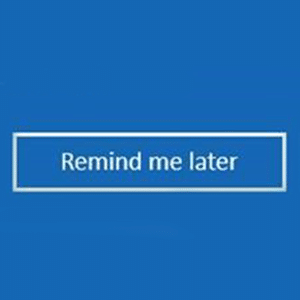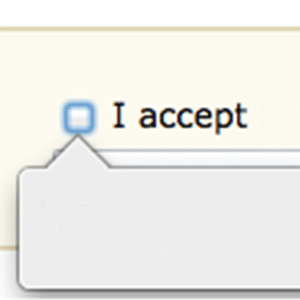Being cyber aware is a hard trait to acquire, especially when we have other online qualities and habits deeply ingrained in our system. These habits have become a norm, and almost every individual ignores the threats they pose. Here is a list of things that you might be doing every day which are a threat to your online security.

Điều tốt nhất về thiết bị của chúng tôi là chúng làm tốt hơn việc nhắc nhở chúng tôi khi các bản cập nhật được tung ra / có sẵn. Vì các lỗ hổng và lỗ hổng được phát hiện thường xuyên, nên tính khả dụng của các bản cập nhật cũng vậy. Do đó, bạn sẽ nhận được rất nhiều thông báo về một bản cập nhật cụ thể đến mức bạn nghĩ rằng nó gây phiền nhiễu. Bạn sẽ làm gì tiếp theo? Bạn sẽ tắt tiếng các thông báo. Thói quen này có nghĩa là bạn sẽ bỏ lỡ các bản cập nhật và bản vá quan trọng, do đó hệ thống hoặc ứng dụng của bạn sẽ gặp rủi ro nếu lỗ hổng trong đó bị khai thác.
Để thiết bị của bạn không giám sát
This applies to computers and smartphones; most people are victims of this habit. For example, you have been working all day, and you decide its time to take a quick break or even get some fresh air. Since it’s a short break, you forget to lock your computer as you do not want to enter your long password again. But it takes a moment for a malicious person to load malware into your device and begin to wreak havoc. Before leaving your device behind, make sure it’s locked.

Almost every service, account or programs that are on the internet have a section of Terms of service. For instance, when signing up for let’s say a social media account, there’s a checkbox/button below these words, “by continuing, means you have read and understood our terms of service.” Usually, there’s a link in the words, ‘terms of service’ that when clicked, will open the terms of service page. But since you might be eager, and in a hurry to use the service, all you end up doing is agreeing to what you don’t know. You risk your online data since some of the services have stated in their terms that they have a right to retain your data, track you and even may allow third parties to access it. Other services collect your device fingerprints, and other can delete your account without prior notice.
Sử dụng thông tin đăng nhập mạng xã hội để đăng ký trên các trang web khác
When presented with; register using your email or with Facebook/Google, you are likely to choose with Facebook/Google or another available social media site. This is understandable because using social media logins is convenient, faster and you don’t have to remember passwords. But there are two major problems with this type of login.
First, if your social media account gets hacked, the hackers will have access to all the other linked accounts. Second, the other accounts also have partial access to your personally identifiable information which you would like to keep private elsewhere.
Bất cẩn / vô tình đăng bài
Bạn có thể đã nghe cụm từ này, 'internet không bao giờ quên.' Điều này thực sự đúng vì những gì bạn đăng trên internet sẽ vẫn còn trên internet ngay cả sau khi bạn xóa nó. Nó có thể không hiển thị trên trang web bạn đã đăng, nhưng nó sẽ có sẵn trên một số bộ nhớ cache internet khác. Ví dụ, đây là ví dụ của một giáo dân, meme. Bạn đăng một bức ảnh làm điều gì đó hài hước nhưng không phù hợp, một số nhà sản xuất meme nhìn thấy nó và xu hướng bức ảnh của bạn trên toàn thế giới. Điều này có nghĩa là xóa nó khỏi một trang web sẽ không giúp ích gì. Vì vậy, nếu bạn không muốn thông tin của mình trên web, thậm chí đừng nghĩ đến việc đăng nó ngay từ đầu.
Not using a VPN
The P in VPN stands for Private; a VPN will not only keep your information secure, but it will also keep your identity hidden when you are online. This minimizes a lot of internet threats from malicious people that are after your data.


